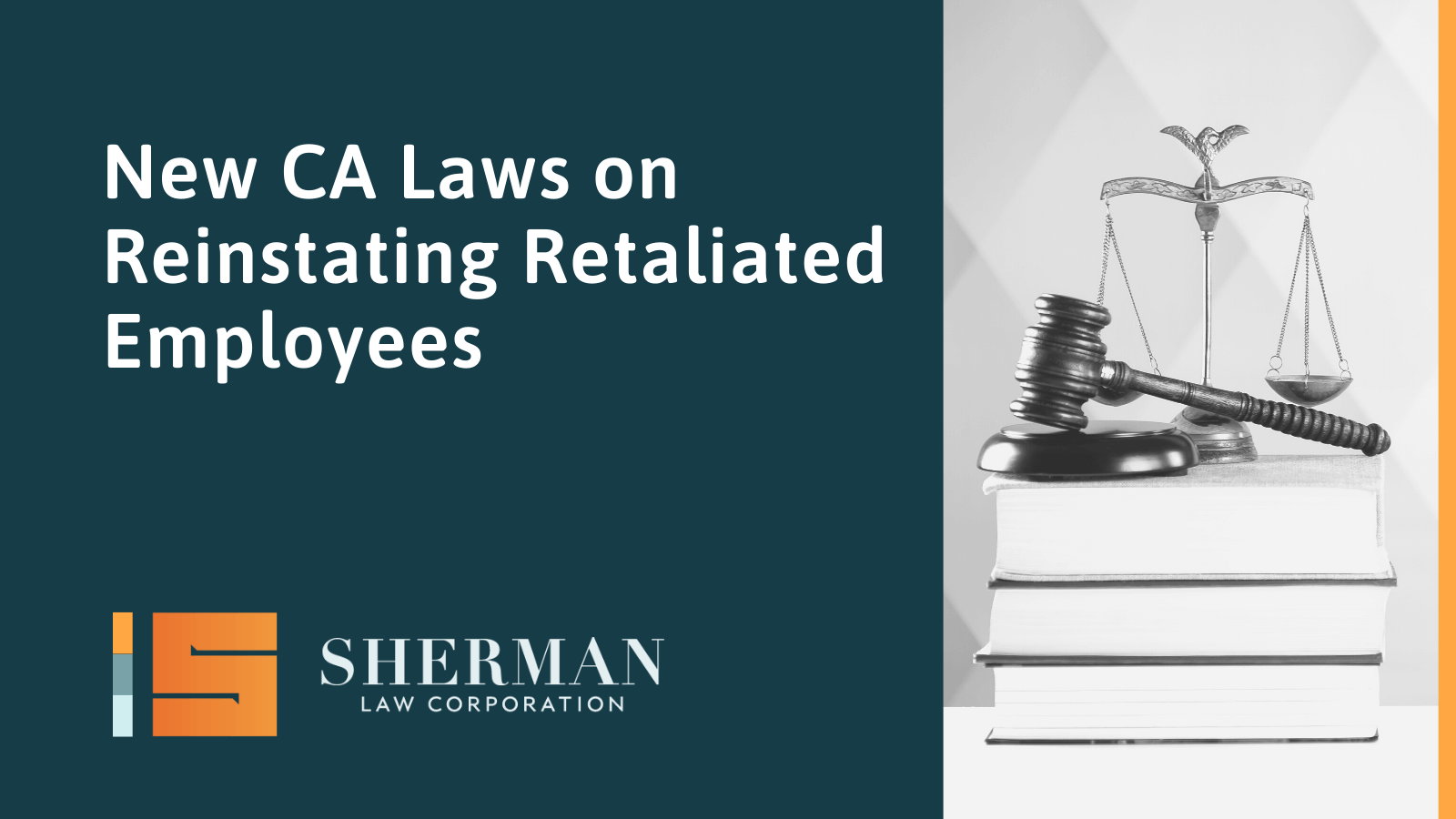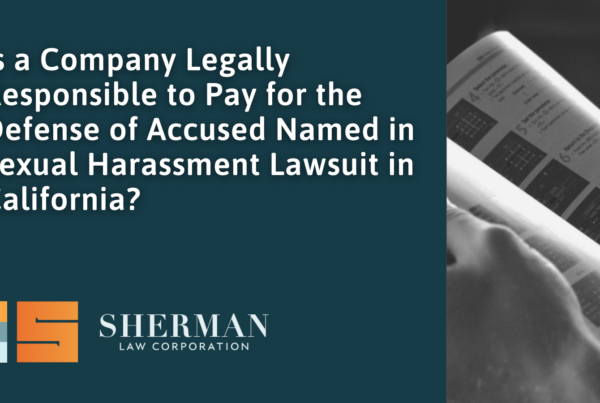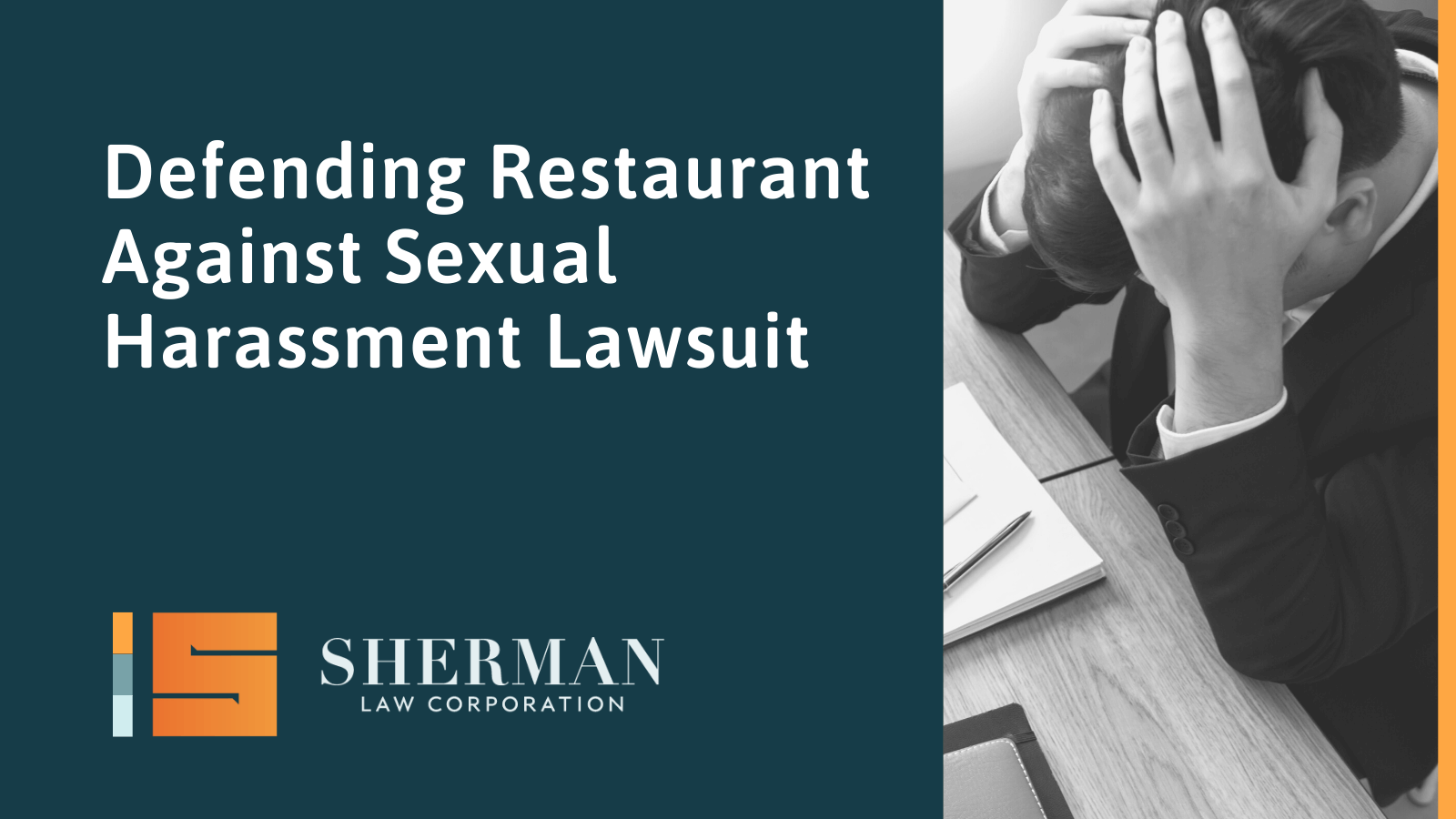
Retaliation Claims Just Got Worst for California Employers.
On October 3, 2014, California Governor Jerry Brown signed into law Senate Bill 306, which takes effect on January 1, 2018. The new law dramatically tilts the scales in favor of employees on retaliation and whistleblower claims by forcing employers to reinstate terminated employees claiming retaliation/wrongful termination throughout litigation, upon a mere showing that “reasonable cause” exists to believe the employee has been unlawfully discharged or subjected to any other adverse employment actions. Since it can take years to litigate these claims, California employers may be ordered to reinstate their obviously disgruntled employees who are suing them!
The Newly Amended Cal. Labor Code Section 98.7 Gives the Labor Commissioner [and Employees] New Powers:
SB 306 primarily amends Cal. Labor Code §98.7. Section 98.7 authorizes the Labor Commissioner to investigate complaints of “any person who believes that he or she has been discharged or otherwise discriminated against in violation of any law under the jurisdiction of the Labor Commissioner. §98.7(a)(1). These laws include California’s pay equity law, its whistleblower laws, and laws prohibiting employers from retaliating against employees who make wage-related and workplace health and safety complaints. Before SB 306, the Labor Commissioner was only empowered to issue a “determination” on the merits of an employee’s complaint, and was required to enforce its “determination” in court. SB 306 now puts the burden on employers to vacate the Labor Commissioner’s findings.
The Drastically-Reduced Burden of Proof to Obtain Reinstatement:
The burden of proof to obtain injunctive relief on a retaliation claim is now drastically reduced. The general standard to obtain a temporary restraining order or a permanent injunction requires the individual to establish (1) irreparable harm if the injunctive relief is not granted; (2) likelihood of success on the merits of the claim, and (3) that these interests outweigh the harm that the defendant will suffer from granting the injunctive relief. Now, upon a mere showing that “reasonable cause” exists to believe the employee has been unlawfully discharged or subjected to an adverse employment action in retaliation for protected conduct suffices under the amended law.
In addition, SB 306 instructs the court to consider “the chilling effect on other employees asserting their rights under those laws in determining if temporary injunctive relief is just and proper.” This, too, favors the employee.
While SB 306 states that an employer is not prohibited from disciplining or terminating an employee for conduct that is “unrelated to the claim of retaliation,” absent clearly unrelated severe misconduct, the employer’s hands will be tied.
Labor Commissioner Investigations of Retaliation will No Longer Require an Employee Complaint:
SB 306 also authorizes the Labor Commissioner to initiate an investigation into alleged retaliation, even in the absence of receiving a formal complaint from an employee. Also, if the Labor Commissioner is the prevailing party in an enforcement action, the court shall determine the reasonable attorneys’ fees incurred by the Labor Commissioner and enforce that amount against the employer.
Employees May Seek A Preliminary Injunction in Superior Court:
SB 306 also adds Labor Code §1106.61 and §1106.62. These sections permit an employee to directly seek a preliminary injunction in the Superior Court if the employee is prosecuting a civil or administrative complaint under California’s whistleblower protection law, Labor Code §1102.5.
Employers that Willfully Refuse to Rehire, Promote or Reinstate Employee or Comply with Court Order Shall be Subject to Civil Penalties:
Finally, any employer that willfully refuses to hire, promote or restore an employee or refuses to comply with an order to post a specified notice, shall be subject to a civil penalty of $100 per day of noncompliance, up to $20,000; all such penalties are paid to the affected employee.
The Employer Takeaway:
While the Labor Commissioner’s limited resources may lessen the blow, the new provisions will wreak havoc on employers by smart plaintiff’s counsel who will directly seek a preliminary injunction in superior court either at the same time, or before filing the civil lawsuit. Because the threshold is low, and the employer will be required to fend off the injunction immediately, employment cases with retaliation claims will likely come to a head much quicker because no employer will want to have to reinstate the former disgruntled employee who is suing them.
Training on the new provisions and procedures governing retaliation and whistleblower claims with all those in supervisory positions is critical, reviewing best practices to minimize retaliation claims are recommended, including:
- Pay Equity Claims. Conduct an attorney-client privileged pay equity analysis because if the Labor Commissioner or employees obtain broad pay-equity injunctive relief under this lower standard, it will not only disrupt the business, but could require increases in compensation while the issue is being litigated.
- Retaliation Claims. Fully vet and properly document all adverse employment actions with experienced employment counsel so if challenged, the employer can show that no “reasonable cause” exists to support an injunction pending an investigation because the adverse employment actions were taken for reasons unrelated to any alleged protected activity.




